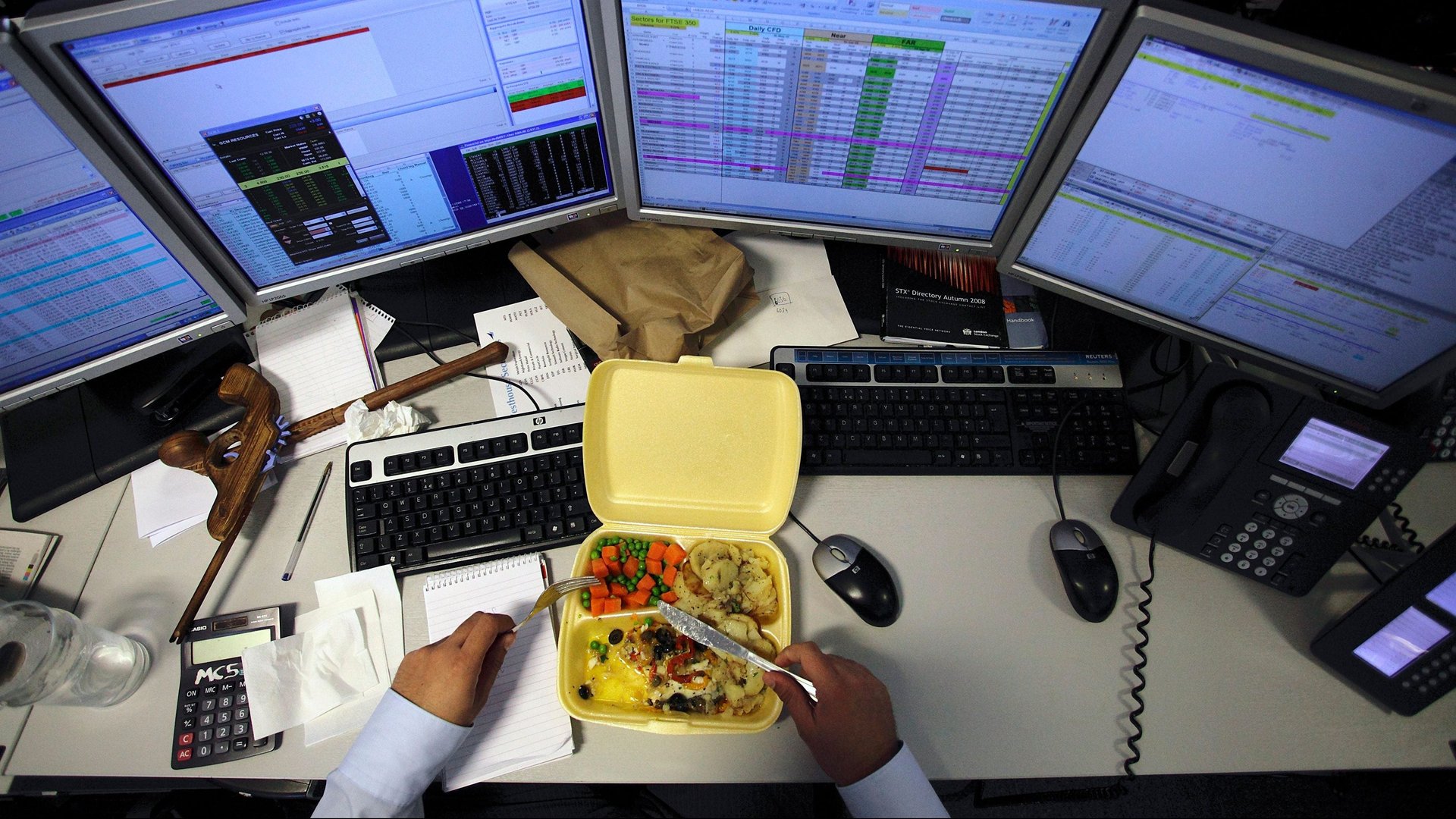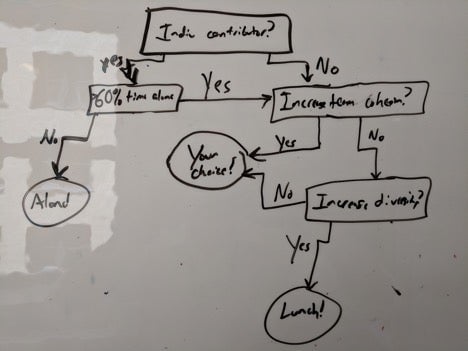There’s an upside to the sad desk lunch
We’re often admonished for eating lunch alone. Authors have devoted entire books to explaining why you should eat lunch with other people at work, and much data supports this claim. People who are connected to more diverse social groups are more influential, and people who focus on developing a cohesive team tend to have higher performance. Networking over a sandwich at lunchtime can help develop either genre of connections.


We’re often admonished for eating lunch alone. Authors have devoted entire books to explaining why you should eat lunch with other people at work, and much data supports this claim. People who are connected to more diverse social groups are more influential, and people who focus on developing a cohesive team tend to have higher performance. Networking over a sandwich at lunchtime can help develop either genre of connections.
But socializing over lunch may still not be the best option for everyone. The anonymous behavioral data my company has collected from hundreds of workplaces all over the world suggests it might make more sense for some people to sometimes eat lunch alone.
Whether you fit into this category depends on your time allocation. Suppose, for example, that you are a software developer who is in long meetings for 70% of your day. You are already spending a significant amount of time socializing. Communication is extremely important for reducing errors, increasing job satisfaction, and diffusing tacit knowledge, to name only a few effects. But that doesn’t mean that focused work (15 minutes or more of uninterrupted work) is unimportant. Depending on your role, spending anywhere from 10% (in a management role) to 40% (in an individual contributor role) of your time in focused work is necessary. Devoting three lunches to yourself every week would get you closer to an optimal level of focus time.
When it comes to networking, meetings are not a substitute for lunches, but if you’re already spending a significant amount of your time in informal conversations, the importance of lunch is vastly reduced.
The value of lunch may also depend in part on whether you’re trying to expand your connections outside of your team or to build connections inside of it. It appears that socialization periods at work tend to encourage interaction between people who don’t normally speak with each other, which means lunchtime is probably a better venue for the former.
As a quick reference, here’s a diagram that can help guide your lunchtime decision:

In addition, research shows that taking breaks to rest and recharge increases job satisfaction. While setting aside some time to socialize is a good idea, this is a nice stat to keep in mind the next time someone shames you for taking a lunch to yourself.
Ben Waber is the president and CEO of Humanyze.